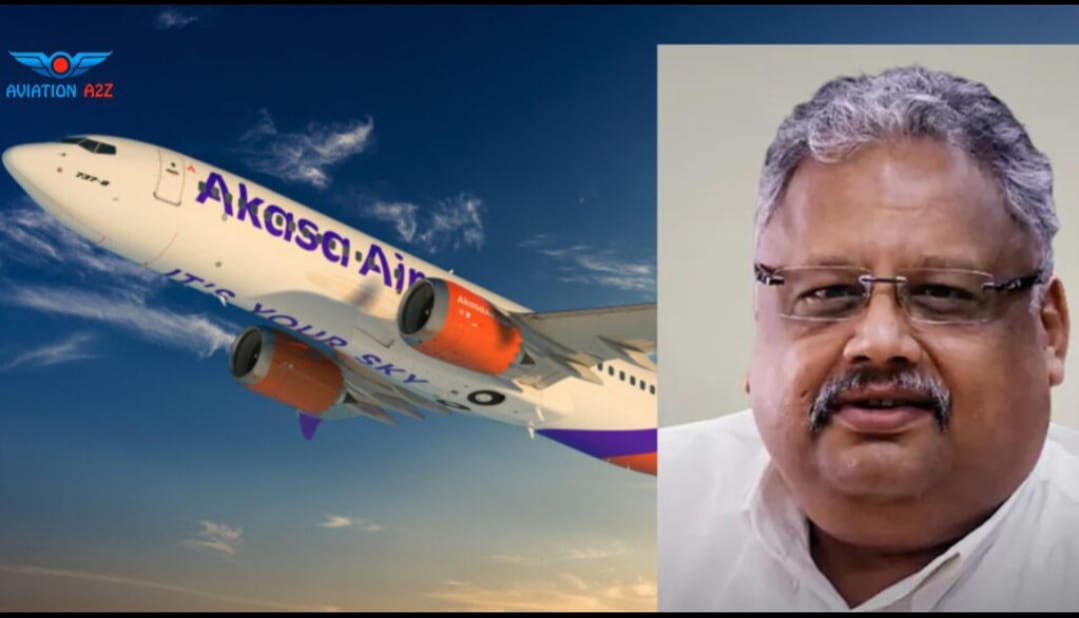Scratch to 100 cr turnover - Karnataka's Sparsh Masala rapid growth
February 6, 2026
February 21, 2026,4:47:49 AM

Akasa Airlines is a Mumbai-based Indian airline founded by aviation veterans Vinay Dube and Aditya Ghosh, with significant financial backing from celebrated investor Rakesh Jhunjhunwala. Launched in 2022, Akasa quickly became known for its low-cost business model, youthful branding, and environmental initiatives like eco-friendly uniforms and fleet choices. Despite rapid early expansion, Akasa faced notable challenges such as pilot exoduses, security breaches, and delivery delays in its fleet, yet continued to grow and enter international markets by 2025.
![]()
Founding and Launching
Akasa’s creation began in 2021 with Vinay Dube (ex-Jet Airways CEO) and Aditya Ghosh, supported financially by Rakesh Jhunjhunwala, who eventually held a significant stake. The airline received regulatory approvals and its Air Operator Certificate by July 2022, launching commercial service on August 7, 2022, with Mumbai–Ahmedabad flights using Boeing 737 MAX aircraft.
![]()
Rapid Growth and Innovations
Akasa set a record by expanding from zero to 20 aircraft within its first year, the fastest such growth in global aviation history. Its branding (“Sunrise Orange” and “Passionate Purple”) and crew uniforms featuring recycled rubber sneakers signalled a focus on youthfulness and sustainability. Despite being a low-cost carrier, Akasa invested in a new, green fleet of Boeing 737 MAX aircraft, growing to 27 planes by mid-2025 with significant additional orders pending, though ongoing delivery delays constrained expansion. Challenges and Crises Akasa faced several internal and external hurdles, including a major pilot exodus in 2023, which led to flight cancellations, reputation damage, and a declining market share.
![]()
The airline also suffered a data breach in August 2022, exposing some customer information but not travel or payment details. International Expansion, late 2023, Akasa secured permission to operate internationally and launched flights connecting Indian cities with destinations in the Gulf, including Doha and Abu Dhabi, with plans to add more Middle East and Southeast Asian destinations in 2025. Akasa announced codeshare agreements and sought to establish key strategic hubs at major upcoming Indian airports like Noida and Navi Mumbai.
![]()
Market Impact and FutureAkasa’s market share grew swiftly, reaching around 4.2-4.8% within its first two years. Despite losing Rakesh Jhunjhunwala soon after launch, his “Midas touch” and branding influence remain central to Akasa’s identity and strategy. Akasa Air represents a prominent new chapter in Indian aviation, exemplifying both the promise and volatility of the sector.
Akasa Airlines experienced substantial growth in both its fleet and route network from its 2022 launch through 2025, rapidly expanding to become a key player in India’s aviation sector. Fleet Growth By June 2025, Akasa Air operated a fleet of 30 Boeing 737 MAX aircraft, including various configurations of the 737 MAX 8 and MAX 200.
![]()
The airline aims to reach 35 aircraft by the end of 2025 and has orders placed for up to 196 more aircraft, including 100 Boeing 737 MAX 10 and 96 additional variants, to be delivered by 2032. Major expansion milestones included receiving the 29th and 30th aircraft in 2025, with public plans to grow the fleet to 76 aircraft by March 2026, positioning Akasa among the fastest-growing Indian carriers.
The fleet is among the youngest and most fuel-efficient in India, supporting aggressive capacity expansion and lower operating costs. Route Network ExpansionAkasa began with a single route in 2022 (Mumbai–Ahmedabad) and, by 2025, operated across 28 destinations, including five international cities.
![]()
The route map includes major metro connections and an increasing focus on underserved Tier-2 and Tier-3 cities, such as Hyderabad–Varanasi, Bengaluru–Jodhpur, Pune–Lucknow, Ahmedabad–Bhubaneswar, and Mumbai–Bagdogra.
Akasa’s entry into international markets began in early 2024, with flights to the Middle East, including Abu Dhabi, and is expected to expand into the SAARC and ASEAN regions in the coming years. In 2025, Akasa leveraged seasonal and cultural demand by launching or increasing frequencies on routes tied to pilgrimage, festival tourism, and business travel, helping sustain high load factors of over 85%. Key Strategic MovesAkasa announced its first codeshare agreement in March 2025 to enhance domestic-international connectivity.
The airline actively positions itself at new and upcoming airports, such as Navi Mumbai and Noida, to capitalise on India’s infrastructure growth and regional aviation boom. Industry ImpactAkasa’s disciplined yet aggressive growth saw a 49% increase in year-on-year revenue in FY25, supported by rising unit profitability and strong operational execution.
By mid-2025, Akasa had flown over 19 million passengers in just three years and surpassed 100,000 departures, underlining its rapid ascent within Indian aviation. Akasa’s growth trajectory sets a new standard for speed and agility in the industry, driven by an ambitious fleet strategy, rapid network rollout, and an expanding international footprint.
© 2024 Iconsofindianbusiness.com. All Right Reserved.